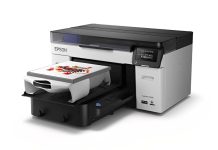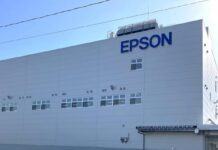
Media Release by Epson
Earlier this month Epson become the first1 company in the Japanese manufacturing industry to convert to 100% renewable electricity for all its domestic sites2, amounting to a total of 530 GWh annually. As a result, Epson will reduce its annual carbon dioxide emissions by approximately 250,000 tonnes.
With high global interest in societal issues, especially those involving the environment and energy, Epson established and is pursuing a new long-term environmental management policy called Environmental Vision 2050. To achieve the decarbonisation goal set forth in the Paris Agreement, Epson has positioned renewable electricity use as a priority action in its 2025 Science Based Targets achievement scenario.3
In March 2021, intending to fulfill its responsibility to society, Epson announced that all global Epson Group sites2 would meet their entire energy needs with 100% renewable electricity by 2023. This will enable the Epson Group to eliminate the approximately 350,000 tonnes of carbon dioxide arising from its electricity production globally every year.
Epson had planned to convert to renewable electricity at all its domestic sites by the end of the 2021 fiscal year (ending March 2022) but will achieve this ahead of schedule, meeting a milestone on the path to transitioning to 100% renewable electricity for the entire Group’s power needs. As a result, Epson forecasts that it can meet approximately 40% of the Group’s total annual electricity needs with renewable electricity in the 2021 fiscal year.
Steps toward meeting the Epson Group’s total electricity needs with 100% renewable electricity:
April 1, 2021 – All sites in Nagano Prefecture, where many Epson sites are located
November 1, 2021 – All sites in Japan (originally planned for March 2022)
2023 (plan) – All Epson sites globally
As stated in Epson’s Environmental Vision 2050, Epson seeks to become carbon negative and underground resource4 free. Accordingly, the company will invest approximately 100 billion yen on decarbonisation, closing the resource loop, and environmental technology development over the next 10 years out to 2030. Epson will concentrate most of its management resources on the development of products and services that help to reduce environmental impacts and that also contribute to reducing the environmental impacts of its customers.
By converting to renewable electricity earlier than scheduled, Epson will not only achieve its own environmental targets but will also help to encourage the spread of renewable electricity in society as a whole.
References:
1Among Japanese companies that have joined the RE100. Per Epson research as of October 27.
2Excludes leased properties of some sales sites, etc.
3SBT Initiative-validated target of reducing scope 1 and 2 GHG emissions by 19% versus FY2017 levels by FY2025. (Actual reduction in FY2020 was 21%)
4Free of non-renewable resources such as oil and metals




















